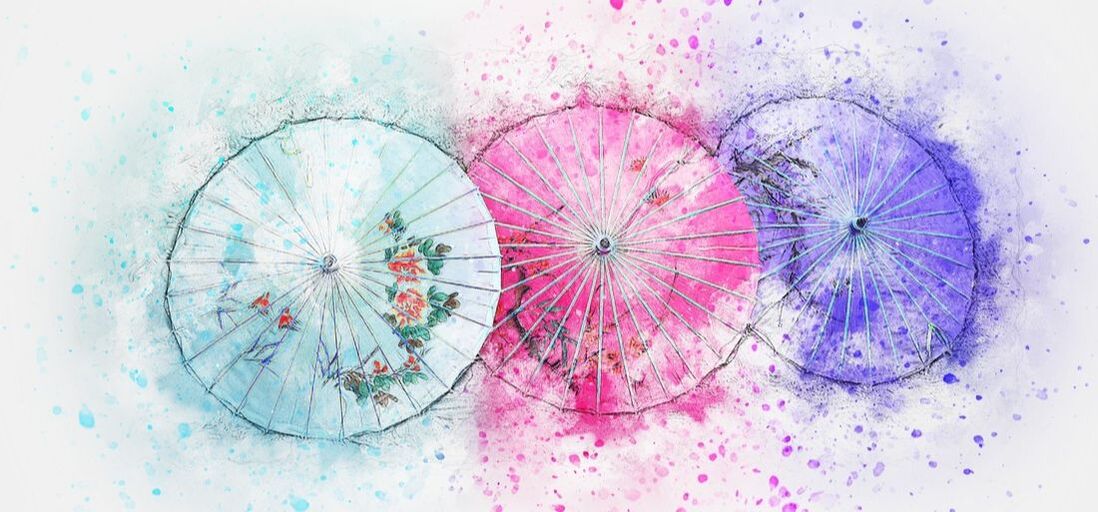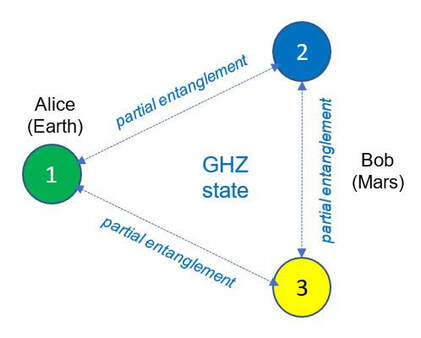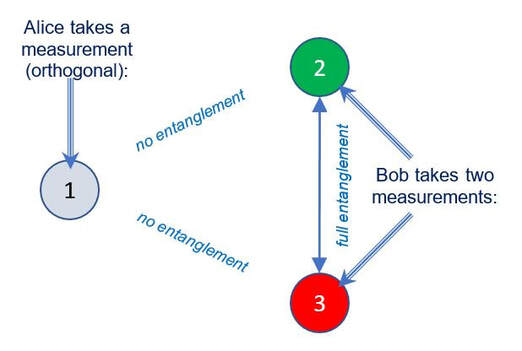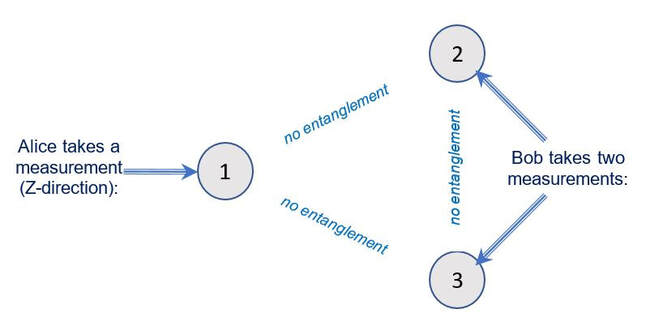Many successful people keep journals. Also, some famous figures in history, like Napoleon or Marcus Aurelius kept journals. This practice has some obvious benefits – it clears up your mind, releases stress, and brings you clarity and inner peace.
There are many varieties of journaling, like keeping a diary; journaling with the Stream of Consciousness technique; keeping a journal from others’ perspective; dream journaling; art journaling; and many, many others. For all of these methods, you can easily find instructions on the Internet. However, in this article, I will focus on a new type of this practice: the Vantage Point Journaling, part of the Reintegration System methodology. Vantage Point Journaling We could say that this is a unique journaling technique. It is different from all other methods in that it initiates writing from four distinctive points of view:
You can adapt your Vantage Point (VP) Journaling practice to your own needs and circumstances. For example, you can keep your diary in a VP Journal form, or practice the Stream of Consciousness technique in a VP Journal framework. Of course, you can apply any other well-known journaling method and do it from several points of view of VP Journaling practice. Vantage Point Journaling is different from all other methods in that it initiates writing from four distinctive points of view.
VP Diary Journaling
This method of journaling is especially good for those of you who need to improve mental clarity, de-clutter the mind, and improve focus. All of us know very well what a diary is. What’s important for this practice is that diary captures streams of thought in an organized and structured way. It requires investing a certain amount of energy and focus on writing. In this framework we will write our diary from several vantage points – the Temporary I,[1] the Heart, another person’s perspective, and Pure Consciousness. The VP Diary Journaling structure is the following: Stage 1: Writing from the Temporary I To begin with your journaling session, do not try to change your mindset or relax too much. Just stay in your current state of mind, whatever it is. Maybe you are anxious, worried, angry, or experiencing any other emotion. You have to write exactly from that state. In this stage, your vantage point is your Temporary I, your transitory I-feeling at that very moment. Just become aware of your Temporary I, its location within your body, and – write. Think about your day, event, or person that you want to write about. The text should be relatively structured, with meaningful sentences. You may be putting on the paper the most important impressions of that particular day, event, or person. Your diary may also relate to thoughts, emotions, new ideas, etc. Let it flow from you. If you are writing in the evening, you can structure your journal by creating a list of questions that you will answer:
Give three to five meaningful answers to each of these questions. When you finish your text, review it. Feel and fully accept main ideas or parts of your text, one by one. You must accept all the main thoughts in the text. By doing that you will effectively remove a great deal of that day’s burden. On the other hand, if you are journaling in the morning, you can create a list of questions related to your goals or action steps for that day, like these:
If you are working with goals, at the end of your text write down the most important goals you are currently working toward. If you want, you can limit the time of writing in this stage, but it should last no less than five minutes. But don’t worry – if you are too tired, it won’t be a problem to reduce your writing to only one or two sentences that comprise your whole day.
Stage 2: Writing from the Heart
The second stage requires you to relax and open your mind. You will probably already find yourself pretty relaxed because the first phase (writing from your Temporary I) has surely de-cluttered your mind to a significant extent.
0 Comments
Emotions are precious messengers that may convey vital lessons about our lives.
There are no “positive” and “negative” or “good” and “bad” emotions. In fact, so-called “negative” emotions often carry more valuable information about our inner being than the “positive” ones. Anger, rage, resentment, fear, anxiety, sadness, despair... All these feelings, in fact, have great transformative potential in the development of each of us. For this reason, the only possible classification of emotions would be (1) “pleasant,” (2) “neutral,” and (3) “unpleasant.” Actually, this grouping may help us in finding the proper ways of dealing with them. Nevertheless, the only authentic way of dealing with emotions is to directly face them and reintegrate them into our whole being. The only authentic way of dealing with emotions is to directly face them and reintegrate them into the wholeness of our being.
Dealing with Emotions
Since every emotion is, in fact, a thought with a strong energy charge, it is always expressed in our body through physical sensations. Emotional energy is constantly reflected in the body, causing different reactions in its specific parts. It is almost always expressed as a tension of a group of muscles, sometimes accompanied by other phenomena—heat or cold, pain, sweating, heart palpitations, rapid breathing, shivering, etc. Sometimes we are not even aware that there is a strong emotion in us that, if not reintegrated, can cause various difficulties and, eventually, illness. Focusing on the physical sensations that result from such emotions will help us more easily recognize their appearance in everyday life. In this sense, it is very important for us to develop a continuous awareness of the presence of emotions through the recognition of their manifestations in our body. Related to this, we have two ways of developing the awareness of the presence of emotions, that is, emotional awareness:
We have two ways of developing the awareness of the presence of emotions, that is, emotional awareness: (1) continuous awareness of physical sensations, and (2) periodic body scans. 
Image by Eduardo Rocha Dudu from Pixabay
Continuous Awareness of Physical Sensations
This awareness is, in fact, a form of mindfulness, which we may also call the conscious Presence. This type of mindfulness should include observing both external and internal contents. When we talk about mindfulness, with the development of this skill we are gradually increasing our awareness of external stimuli—the varied images conveyed to us by the sense of sight; the sounds conveyed by our hearing; and all other content that our other senses convey. Also, by practicing Presence, we become increasingly aware of everything that is happening in our inner world—both in the psyche and the body. Thoughts, mental images, emotions, and all kinds of physical sensations are tremendously important objects of our observation. I should also add that in mindfulness, while consciously observing various external and/or internal events, it is vital to maintain awareness of our sense of I, or self. Another way to develop overall emotional awareness is to periodically scan the body. Body Scans in Search of Unpleasant Emotions Unpleasant emotions strongly affect our physical form. Each of them has its own characteristic body imprint. Some emotions cause tightness of the neck muscles, others cause stomach stiffness, some trigger tension in the chest, while certain emotions are mainly expressed on the face or in the limbs. There are also those that are expressed through the spasms across the whole body. In addition, many emotions are manifested in the body through pain, nausea, itching, and various other unpleasant bodily feelings. Each of emotions has its own characteristic body imprint.

Image by Reimund Bertrams from Pixabay;
It seems that karma is a mysterious force that propels adequate responses to all our deeds. Outwardly, it is merely a mechanism of action and reaction within the emotional, mental, or spiritual planes. But how exactly does a right or wrong action return to us eventually? What is the mechanism of karma?
Holographic Principle The Holographic Principle, hidden in every aspect of reality, elegantly explains the inner workings of karma. Let us reflect upon our possible wrongdoing—for instance, we have manifested aggression toward another human being.
The action from the external world can occur even before our own similar action toward the outer world. Nevertheless, we are often unaware of their inner connection. Such actions from outside will be occurring as long as there is a part within us that corresponds to these actions. There must be a person in our environment which represents the aggressive part of our personality. As such, that person will inevitably take similar action against us. 
Image by HAPPY NEW YEAR *** S. Hermann & F. Richter from Pixabay;
The Question of Conscience
Another way of getting the karmic lessons is through self-punishment. Of course, it is usually a subconscious process. When we commit a negative deed, our conscience creates a feeling of remorse. If it is a conscious feeling, we will repent and maybe even punish ourselves deliberately for that deed. If our regret is deeply hidden under layers of our subconscious mind, it will cunningly undermine our actions and health. It will also create an unconscious decision for self-punishment. Again, in accordance with the Holographic Principle, this decision will be projected onto the external world in the form of resentment in some people around us. In this way, our regret will eventually manifest itself through adverse events in our life or people who will harm us. Of course, I am not saying that we should have no regret over our obvious mistakes. On the contrary, we must recognize our bad deeds from the past and correct our behavior through the reintegration work on our personality. After that, we have to move on. You may be wondering why there are many seemingly unfair cases. It seems that there indeed are rare people without conscience, the so-called psychopaths. They may outlive many of their victims, as there is no conscience and regret within them. They do not regret their actions, and they do not punish themselves for any misconduct. Additionally, such persons typically possess very strong egos, that may shield them temporarily from many external threats, and postpone the karmic events. There are some cases of Nazis who had escaped the earthly hand of justice and even lived long after WWII. However, the karmic lessons eventually reach such people, too. The destructive parts of their beings that were the source of their wrongdoings are reflected in their external world in a variety of possible forms of situations and people. These external forms will inevitably find ways to pierce through the heavy shields of their egos and impact their lives in a reciprocal manner. Conclusion So, there is no invisible, higher council which decides upon the righteousness of our deeds. Neither God does this. There is no hidden force that inexplicably returns to us all our previous actions. It is simply a matter of external reflections of our inner being. Now, it is easy to conclude that karma is the consequence of unconscious living, of unintegrated parts of our inner being which must manifest themselves in our external world. If they remain in that unnatural (unintegrated) state – there is karma. But the Holographic Principle gives us invaluable advice: if we reunite our unconscious, suppressed parts with the oneness of our being, we will become free of karma.
This is a quite technically-oriented article in which I will present an idea for possible superluminal communication, suitable for exercising the skills of critical thinking and objective analysis.
In order to circumvent the natural speed of light limitation, this approach exploits the so-called Greenberger–Horne–Zeilinger (GHZ) state of quantum entanglement. Unlike many previous attempts to use pairs of quantum-entangled particles for this purpose, this approach utilizes quantum entanglement of groups of three particles. There are two such states: the GHZ and W-state. I have to emphasize that this idea is not based on getting results of measurements of entangled particles in various settings or trying to somehow force the particle on one side into the desired quantum state (which is, of course, impossible). Instead, this approach is oriented toward discerning different amounts of entanglement in the tripartite GHZ (or even W-state) groups. If there is a system of three particles in the GHZ state of quantum entanglement, this essentially means that their quantum states are mutually correlated. However, the correlation between any of these two particles within the system is partial, while the entanglement of the system as a whole is full and stable. This reasoning has an important premise: whenever one of the particles within a GHZ system is measured along an orthogonal direction, it becomes disentangled from the other two. On the other “side” of the system, those two other particles become fully entangled with each other, i.e., they are left in a maximally entangled Bell state. On the other hand, whenever one of the particles within a GHZ system is measured along the privileged Z direction, the entanglement of all three particles is completely destroyed. This means that not only the measured particle is disentangled, but also the other two become unentangled from each other and from the first particle. In other words, they are left in a “pure” or “mixed” state.[1] In accordance with the basics elements mentioned above, this approach to FTL communication is presented below in the form of thought experiment. So, we may imagine that one of these particles is on Earth with Alice, who has suitable equipment for measurement. The other two particles of that system are with Bob, who brought them with him to Mars, also with appropriate measuring equipment. Although physically separated, all three particles have preserved their GHZ state of entanglement. [1] “Although a naive measurement of the third particle of the GHZ state results in an unentangled pair, a more clever measurement, along an orthogonal direction, can leave behind a maximally entangled Bell state. (…) The lesson to be drawn from this is that pairwise entanglement in the GHZ is more subtle than it naively appears: measurements along the privileged Z-direction destroy pairwise entanglement, but other measurements (along different axes) do not.” Source: Wikipedia, https://en.wikipedia.org/wiki/Greenberger%E2%80%93Horne%E2%80%93Zeilinger_state
In previously agreed time intervals, depending on the message that she wants to send to Bob, Alice takes a measurement on her one-particle part of the GHZ system. She measures its quantum state either along the privileged Z direction or along an orthogonal direction.
On Mars, Bob regularly takes separate measurements on his two particles in the same time intervals (previously agreed with Alice). If Alice takes the measurement along the orthogonal direction, her particle becomes unentangled from the other two on Mars, but Bob’s pair of two particles becomes mutually fully entangled. He measures both his particles separately, compares the results and learns that their quantum states are 100% in correlation. (Perhaps there should be several more such measurements on similar GHZ systems to determine whether the pairs are fully correlated or not.) Therefore, although no information is really being transferred from Earth to Mars, Bob instantly assumes that Alice has taken the measurement along the orthogonal direction because his particles are fully correlated, and this fact he translates into a simple message “YES” or, say, 1.
If Alice takes the measurement along the Z direction, Bob becomes aware of that because when he measures his pair of particles in the GHZ state and gets information on their quantum properties, he sees that they are disentangled from each other. As he now knows that Alice took the measurement along the Z direction, he translates this state of disentanglement between his two particles as “NO” or 0.
Alice and Bob may have arrays of these three-particle GHZ systems, each with one particle on Earth, and two particles on Mars, and vice versa. They use these arrays for multiple exchanges of simple information, and, if needed, for determining with high certainty whether two other particles in each system are fully entangled or not. Moreover, there should be multiple measurements for each side to ensure that the jitter of the measurement tools cannot reverse the order of measurements.
Note that a similar approach could be applied to another type of tripartite entangled state—the so-called W-state. In it, three particles are also entangled as a system, particles are mutually entangled to some extent, but when one takes a measurement on one of its constituents, that does not destroy the entanglement of the other two particles—on the contrary, the entanglement persists and even becomes full. In this case, also in regular, previously agreed time intervals, Alice either takes or skips her measurement. On Mars, Bob would always be taking measurements on his array of particles. If Alice had taken her measurement, he would have learned that his pairs of particles are fully entangled. He instantly knows that Alice had taken the measurement and therefore he assumes that the message is YES or 1. Conversely, if Bob’s results show that his pairs of particles are still partially entangled, it would mean that Alice skipped her measurement, thus he concludes that her message is NO or 0. It seems that, effectively, complex messages can be instantaneously exchanged between Alice and Bob in either of these ways. They would not have to wait fifteen or twenty minutes to get the information from the other planet. In a nutshell (for the usage of GHZ state of quantum entanglement): 1. There are three particles in the GHZ entangled state; 2. One of these particles is with Alice on Earth, the other two are with Bob on Mars; 3. Either:
In a nutshell (for the usage of W-state of quantum entanglement): 1. There are three particles in the W-state; 2. One of these particles is with Alice on Earth, the other two are with Bob on Mars; 3. Either:
DISCLAIMER: The laws of physics strictly forbid superluminal communication. This is only a mental exercise with the purpose of developing the skills of critical thinking and objective analysis. I invite readers, especially those with solid knowledge in the field of quantum physics, to closely scrutinize this thought experiment and let me know of any flaws in this reasoning in the comments section. Have a nice day! :-)

Image by Enrique Meseguer from Pixabay
Every human being needs to sleep, we all know that. But it’s interesting that almost every animal needs sleep too. No matter the species or age, whether it’s a lion, dolphin, insect or octopus, they all need a certain amount of sleep each day. This tells us that sleep is deeply ingrained into the DNA of all living beings that possess any kind of nervous system.
Need for Sleep—Physical Aspect Let us first examine the physical function of sleep at the cellular level. Recent research conducted in 2013 by an American team of neuroscientists, shows that our brains shrink down during sleep, thus leaving some space inside the skull to be filled with the cerebral fluid which then takes out the toxic waste of the brain’s work. Therefore, sleep is essential for our physical and mental health, longevity and proper functioning in this world. Our brains shrink down during sleep, thus leaving some space inside the skull to be filled with the cerebral fluid which then takes out the toxic waste of the brain’s work.  Image by Enrique Meseguer from Pixabay Image by Enrique Meseguer from Pixabay
However, there may be a deeper, spiritual cause of sleep. And if there is, what that could be?
And the Holographic Principle teaches us, as inside—so outside, or as above—so below. In this case, we could suppose that the clue may be found at the lowest, physical level, because all levels are interconnected and symbolically mirror each other. So, at the physical level, there is this process of cleaning up the brain from its toxic waste during sleep. Similarly, on the emotional and mental level, we clearly have a process of deep rejuvenation of our minds. Our toxic thoughts and emotions are being washed out and removed from our subconscious mind during sleep. How does that happen? First of all, we need to understand the process of imprinting the painful experiences into our minds. When we are in the state of conscious presence or Pure consciousness, unpleasant experiences are very rare, and if they do appear, by retaining or re-entering our state of Presence, the stressful event will inevitably fade away. On the other hand, stressful experiences typically occur while we are in a semi-conscious state (i.e., state of being overwhelmed by thoughts or emotions, or being drunk, dizzy, or in other states of mind). Then these experiences stay at that level of consciousness or even get suppressed into lower states of mind, very close to unconsciousness. Normally, we can release them only when we get into exactly the state of mind where they are hidden. Therefore, when we want to recall a suppressed event from the past, which is the source of a problem, we often need to purposefully dive into the unconscious or at least a sort of semi-conscious state. In this sense, hypnosis, autohypnosis, and similar techniques are very effective. As we start falling asleep, we gradually delve into an unconscious state. In this way, while we are still in the semi-conscious state, many impressions, thoughts, and emotions related to everyday experiences are emerging. Usually, these are the mind contents that have some emotional charge. The subtle barrier between the conscious and subconscious mind weakens and it begins leaking various contents of the subconscious mind. The same may occur in the process of waking up, although usually much faster. This process of releasing the painful and suppressed impressions happens in dreams as well, which are almost completely out of control of our conscious ego. If the suppressed impression remains hidden in the layers of our subconscious mind, it must eventually be expressed somehow in our body or in the outside world. This may bring about similar or even worse troubles than those that had caused the suppressed experience. Or it may cause physical or mental illness. That’s why sleep is so important, as well as work on the reintegration of these experiences. Deep Sleep What happens with us when we are in a state of deep sleep? Our consciousness has been gone for a while. It reemerges several times during sleep when we are dreaming (REM phase), although that is a kind of semi-conscious state. But what happens in-between? A similar unconscious state is found in a coma, but without the REM phase and within different biochemical body conditions. In any case, the deep sleep state is needed typically for the vast majority of living creatures. In that period of the day, we are all absolutely dis-identified with our bodies. Our consciousness is indistinguishable from the wholeness of Existence. We are seeing the face of God. But, since that state is completely beyond mind, space, time, matter and energy, there are no memories of it when we wake up. However, in that period our mind is inactive and free of our conscious decisions and pressure for activity. It does exist as an energetic entity, and it’s free to heal and rejuvenate itself, to naturally discharge a lot of unnecessary mind contents, similarly to the above-mentioned process of taking out the toxic waste of the brain’s work. Cycles and Recapitulation Going daily through the cycle from deep sleep to waking state, all sentient beings relive all previous stages of their spiritual evolution, starting from the initial state of oneness with the primordial consciousness (deepest dream), through the state of low-level group consciousness (semi-conscious state before or after sleep), until transition into an individual self-aware consciousness. This cycle of recapitulation of spiritual evolution takes place during the whole human life, in which one passes through the embryonic stage—primordial consciousness; early childhood— the semi-conscious condition of the mind; and adult individuals—the normal waking state. Cycles are inevitable. Recapitulation also exists at the physical level, where the embryo undergoes the stage of development of its biological species—single-celled, then multicellular organism, the stage of fish, amphibians, etc. We may assume that sleeping and dreaming are parts of recapitulation cycles that are vital to all living beings. All of us must repeatedly experience all the main stages of our previous evolution in order to continue with the next stages of development. Sleeping and dreaming are parts of recapitulation cycles that are vital to all living beings.
Therefore, it seems that the lower states of consciousness that we are repeatedly experiencing in these cycles and oscillations (both on a daily and long-term basis), are the foundation of our conscious existence. Moreover, they are the springboard for further spiritual growth.
Tips to Improve Your Sleep Hygiene

Image by Gerd Altmann from Pixabay
With only a few exceptions, anyone who really strives for spiritual growth and self-improvement, in general, must invest a lot of serious and persistent efforts into that work. Typically, mindfulness, meditation, and inner reintegration (or psychological work of various kinds) are required.
All of this should be supported by having a higher purpose of this work and fueled by strong determination and desire for spiritual liberation. Without this, your meditation and mindfulness practice could easily be stalled or even completely ruined. Also, we know that the subconscious mind plays an immensely important role in our lives and spiritual growth. We must somehow explore its depths and harness its power. But how? Forgetting We could say that the subconscious mind is part of our being which consists of everything we have forgotten or have not been aware of. We can forget something intentionally, when we willingly put some experience behind us, forcing ourselves not to think of it. Subconscious mind is part of our being which consists of everything we have forgotten or have not been aware of.
We may also forget unintentionally when we fall asleep, faint, dive into a dreamlike state, or discontinue our conscious experience in any other way, which sometimes leads to forgetting.
Nevertheless, all forgotten memories are still there, within you, although they are seemingly inaccessible to your conscious mind. Subconscious Structures According to the Reintegration System’s view, these subconscious structures that you need to integrate might be:
Typically, these structures influence your everyday life from the subconscious level. They often lie deeply hidden in your subconscious mind and it might be incredibly difficult to recognize and reveal them. Dealing with the Subconscious Mind What to do with all these subconscious structures? There are two options:
The first option is the reintegration work. Of course, this implies not only the application of the Reintegration System’s methodology. It may also refer to any other psychological/spiritual work. As we have already covered the first option in many of the previous articles, here we will focus more on the other one – changing the subconscious structures. Reprogramming the Mind Surely, one of the most important questions of personal development is how to access and influence the subconscious mind in a safe and effective way. Some practitioners call this work reprogramming the mind. It is gentle and thorough transformation of some aspects of personality mentioned above. For example, beliefs, habits, traits, rules and even the general aspects can be transformed by this reprogramming work. In the Reintegration System, there are some techniques for changing these subconscious structures. One of the very effective methods is, for example, the Replacing Beliefs technique. Essentially, this method will help you make a list of your negative core beliefs and to replace them with the opposite ones, consecutively. Also, this work can be done through repetition. There are many different approaches to it, such as:
1) Repetition of actions (habitual behavior) Through repetition of actions, we may form a new habit. We could simply repeat the wanted behavior, again and again, and sooner or later it will become rooted in your being. But for carrying out this, we must be really, really persistent and patient. However, there is another, scientifically proven way of making desired habits or changing unwanted habits into beneficial ones. We have to add a trigger and reward to the wanted routine. In his great book “The Power of Habit: Why We Do What We Do, and How to Change,” Charles Duhigg reveals the details about the scientific research that has led to a very important discovery: the so-called Habit loop (see figure below).
You have probably heard of the so-called Fermi paradox. Namely, in 1950 Italian-American physicist Enrico Fermi considered the intriguing question of why alien civilizations were not visiting Earth, or at least why we had no trace of their visits in the past, given the enormous time span since the birth of our galaxy to the present.
The Search for Extraterrestrial Intelligence (SETI) Institute in Mountain View, California, said on its website: "Fermi realized that any civilization with a modest amount of rocket technology and an immodest amount of imperial incentive could rapidly colonize the entire galaxy. Within ten million years, every star system could be brought under the wing of empire. Ten million years may sound long, but in fact, it's quite short compared with the age of the galaxy, which is roughly ten thousand million years. Colonization of the Milky Way should be a quick exercise." Where Are They? So, at least officially, there have been no signs of any extraterrestrial civilizations yet, neither here on earth, nor in the outer space. Why? Is there anybody out there at all? Given the huge number of potentially habitable planets in our Milky Way galaxy (at least 300 billion), and vast time spans from the probable emergence of intelligent civilizations in the galaxy to this day, various types of extraterrestrials have surely been visiting our planet. Here are several possible answers to this conundrum:
Possible Alien Forms Let us examine the intriguing question about probable forms of extraterrestrial intelligent life. First, the idea of panspermia can give us some clues to this problem. If interstellar panspermia is real, then it is quite possible that there are many species out there similar to our own, with a humanoid shape, even human-like characteristics. If the life-coding molecule, the DNA, is common among many solar systems thanks to panspermia, then the similarities are possible, but still not certain. Yet, a kind of humanoid shape of intelligent (self-conscious) alien beings may be quite expected or at least frequent among many types of extraterrestrials. If similar evolutionary forces are in place on other planets, then the being should have a vertically oriented shape of its body with eyes and other sensory receptors on its top, because this provides the advantage of spotting any danger in time. In order to quickly process all the data from the sensory inputs, the brain or its analogous data-processing center must be near these organs. Therefore, the creatures will probably have some sort of head with a brain, eyes, ears, and other sensory receptors. The entity also needs a few limbs to manipulate precisely the environment and legs to be mobile.
However, the size and physical appearance of extraterrestrials may still be completely different from ours, which depends on the gravity of the planet and many other factors. The lower the gravity, the taller the critters may be. For instance, if there were any intelligent life forms on Mars in ancient times, they could have been very tall and slim.
Holographic View on Reincarnation
The real process of reincarnation is far more complex than in the classical views of Hinduism or Buddhism. For example, the terms “previous” or “future” life are far from being reliable for depicting the Truth. In a way, these “previous” or “future” lives are all simultaneous. Let me explain. In accordance with the theory of relativity, time is interchangeable with space within the space-time continuum and, in a way, time is only the fourth (or first!) space dimension in that continuum. Our consciousness is moving steadily along that fourth axis of the space-time chart. This is actually giving us the impression that everything is changing. We are moving along that time axis and everything else around us seem to be moving as well. Nevertheless, the whole fourth-dimensional existence is fully stable in the 4D space-time continuum. Therefore, our lives in the “past,” from the perspective “outside” of the space-time continuum, are actually simultaneous existences. It’s just a matter of point of view—from which coordinate of the space-time you are observing an event. You could even have some lives in the future that are your “previous” lives, meaning the roots of some events in this life stem from those lives. Or vice versa. But that’s not all. Yes, there are many people being able to recall many various lives from their “past” or “future.” Yet, there were some accounts of different people remembering the same life! How’s that possible? The answer is fairly simple: we live in the holographic world. Simply put, a holographic world’s view indicates that the Universe is a huge hologram, which is in line with some of the theoretical physics’ new approaches. In accordance with that, each phenomenon, thing, event or being within that hologram has all the information on the entire hologram. This implies that information on the whole Universe, including its past and future, is embedded within each of us. That’s also applicable to the reincarnation. When one remembers a life, say, from the past, that same life could be “remembered” by another person, as that life is a part of that person’s embedded information as well. It’s just a matter of individual traits and subconscious structures of a person who remembers, which lives they will remember more probably. Each individual is more inclined to one or more “streams” of lives within the “past” or “future,” and those streams are usually considered as their real past or future lives.
Bizarre Entities of Time
But there could exist many forms of time itself. Imagine that there are beings whose conscious focus is moving in the opposite direction along the fourth coordinate of this 4D continuum. To them, the reality would also be perfectly credible, otherwise, they wouldn’t be conscious at all. Although their reality would be completely different than ours, they would live their lives unaware of our “time” and perhaps of our existence, too. Moreover, there could exist beings whose conscious focus is moving steadily (or unsteadily?) along one of the other three coordinates of our space-time continuum. Their existence would probably be completely unrecognizable to our minds. Yet, their lives would be absolutely plausible to them, as they would find their ways of connecting different things or events within their consciousness. Actually, that would be completely natural to them. We can go even further on: the existence of entities whose “time” is two-dimensional or multidimensional is also possible. Their conscious focus would be moving not along one coordinate only, but two or more. Theoretically, there could be an infinite number of dimensions, which implies the possibility of infinite “types” of conscious minds. However, string theory envisions the existence of 10 or 11 dimensions in total, of which our familiar 4 space-time dimensions are fully “developed” or infinite, and the rest are infinitesimally small. 
Image by Stefan Keller from Pixabay
Are We Living in a ‘Block Universe’?
Yet, things are even more complicated than all of this. We are not only living in a “block universe” which is static from the 4D perspective; quantum physics tells us that in every single moment of our conscious existence we are “collapsing the quantum wave function” and choosing only one of the countless possible universes that lie ahead of us. So, we are not some passive experiencers of reality, we are actively choosing our reality ahead and making it real. Still, all those possible lines of time are real in a sense, we could say, as “potential realities.” These potential realities are also part of the whole picture. Some other beings might be going along those potential timelines, but they are real to them, as our is potential to them. Not only that, there are countless potential timelines behind us, as possible past events that could lead us to this here-and-now reality. And we are aware of one timeline only, to which our memory is tied (except in some cases of the so-called “false memories”). Therefore, the whole picture is far more complex than looking at “simple” 4D relativistic continuum. Nevertheless, although we are still far from a final “theory of everything,” everything we have learned so far directs us toward a conclusion that the reality and consciousness within it are inseparable, both with potential to have endless manifestations. And consciousness plays a dynamic role in these manifestations – it actively chooses its path all the time. Nevertheless, we are all one, at the deepest level. And all lives that “happened” in the past or “will happen” in the future, are the lives of the only one being – the Pure Consciousness, Underlying Perfect Reality, God, or whatever we call it. We are one.

Image by Виктория Аникина from Pixabay
When you find yourself in the middle of hardship, overwhelmed with fear, anger, sorrow, or any other painful emotion, there is always a way out. So, I would like to recommend that you pass through several well-defined steps which will bring you great relief.
Here are ten tips on getting through tough times in life: 1. Say to yourself: There is a feeling of ______in me. Recognize a predominant feeling in you that is related to the hardship you are experiencing. Focus on this feeling. Name it with as few words as possible. For example: There is a feeling of fear in me. 2. Accept this feeling completely. At this stage, try to apply the Total Acceptance technique on this feeling. So, if you are feeling fear, you will need to fully accept it. Embrace it, without any resistance. 3. Feel in which part of your body this feeling is expressed and in which way (pain, tension, discomfort…). While sensing the unpleasant feeling, determine its location within your body. In most cases, emotions are expressed in the stomach. In our example, perhaps you are sensing the fear in your upper stomach; this part of your body is full of tension and discomfort. 4. Accept totally this unpleasant sensation in your body. Now, this is one of the most important steps. Again, use the Total Acceptance technique. You have to completely accept the unpleasant sensation itself. To do that, you must repeat the Total Acceptance procedure several times, until the uncomfortable physical sensation is gone. So, in the current example, you are accepting over and over again the tension and discomfort in your upper stomach. The chances are that the sensation will fade away eventually. 5. Everything has its own good purpose. Life is a great show. Everything is transient. Happiness always comes back. These statements will soothe you even more and may deliver you profound relief. You just have to repeat to yourself these affirmations several times, with the conviction that they are true.
At the very beginning, let me point out that this article mainly deals with ideas that are speculative in their nature, on the edge of the scientific domain. Nevertheless, these concepts are still in line with numerous scientific research which, in my opinion, are not only thought-provoking but can be of great benefit to the psychological and spiritual development of mankind.
I must say that in the case of mental and health problems, a professional medical engagement of an authorized specialist/doctor is necessary, while all of the following techniques and procedures can only be added to the medical treatment. In many cases, however, these techniques will serve as a protective measure and could prevent your need for visiting the doctor. Invisible Realities Modern physics is getting increasingly closer to the conclusion that parallel universes are real. A few decades ago, this idea existed only in the domain of science fiction and pure speculation. Meanwhile, emerging unexpectedly as an outcome of several serious theoretical approaches, it has become very close to being widely accepted among physicists. For example, string theory and theory of inflation predict the existence of other universes. Also, there is an increasing number of indirect experimental indicators that the parallel universes do exist. On the other hand, there is clear scientific evidence that this material universe is not only of gargantuan size, but that visible matter and known forms of energy are only a small part of the total matter and energy present in the cosmos. Namely, in the standard Lambda-CDM model of cosmology, the total mass-energy of the universe contains 5% ordinary matter and energy, 27% so-called dark matter and 68% of a mysterious form of energy known as dark energy. In other words, only about 5% of the matter in the cosmos is visible and detectable, while the remaining 95% falls within these invisible forms of matter and energy. Here, the word “dark” refers to being virtually invisible and unknown to us. No one still has an answer as to what dark matter and dark energy are, but it is clear that they exist and that they permeate this reality in an invisible and subtle way. Furthermore, an increasingly important question in science is human consciousness, which remains a complete mystery. Some research even says that consciousness survives the death of physical body and “goes somewhere.” If this is so, is it possible that our consciousness after physical death transitions to one of the parallel universes that the string theory is talking about? Or, maybe, dark matter and dark energy answer the question of the spiritual world’s existence, which may be made up of subtle and invisible particles and fields of these unknown types of matter and energy? In any case, even the most stubborn skeptics cannot refuse these possibilities. Personally, even though I am by nature a skeptic, I have come to the definitive conclusion that consciousness survives the death of the physical body. Moreover, I believe that consciousness is immortal and ubiquitous and that the “world beyond” does exist. Invisible Beings So, if we truly believe that consciousness is immortal and omnipresent, that there are other dimensions, parallel universes, and other levels of reality, we must admit that there is a logical possibility that there also exist innumerable conscious beings of various kinds which are present in these worlds. Also, this material universe is probably inhabited by many types of conscious entities – not only humans and other beings from this planet, but species on other planets, in other solar systems, and different cosmic environments, too. Moreover, there must exist countless beings invisible to us that live in the physical world as well as at all other levels of existence above this one in which we operate. Of course, there are entire groups and hierarchies of these invisible beings. Quite logically, for some types of entities we could say that they are “neutral” from our perspective, some groups are “good,” others – “bad,” while there are beings so strange that we cannot classify them into any group or even comprehend by our minds. Of course, the idea of invisible entities that are present here, alongside us or even within us, is very disturbing. And indeed, this is real, but only partially. Yes, there are beings that we cannot see, hear, nor do we feel their presence in any way. Yet many of them are able to see us, and even have impacts on our lives to some extent. Some of these “Invisibles” are “neutral,” some are “bad” or unpleasant, but we should know that there are many “positive” beings that help us and inspire us on our life course. We will call them here the Beings of Light. Although all this can be disturbing to someone who faces such ideas for the first time, we need to know that, still, all is up to us. Ultimately, we are in charge. Every person is fundamentally responsible for their own life because all these “positive” or “negative” influences are only the result of our deepest inner decisions, thoughts, habits, or emotional turmoil. Uninvited Guests Do you sometimes wonder why people have inexplicable outbursts of rage, uncontrolled fear, or eruptions of other negative emotions, which sometimes lead to horrifying situations and crime? Are the childhood traumas and the existence of various negative psychological aspects within a personality the only explanation for such phenomena? In my opinion, they are not. There are many indications of various conscious entities that are attached to us, directly or indirectly affecting our behavior and state of consciousness. A lot of literature describes research in this field. For example, in his excellent book “Healing Lost Souls,” William J. Baldwin depicts many cases of solving psychic problems and dysfunctional relationships by applying specific techniques for the release of so-called “attached entities.” There is a vast range of beings and energies that can be “nested” in our aura or within our being, such as souls or energy remnants of deceased people, parts of personalities of living persons, or even the “classical” Beings of Darkness, i.e. demons. What is most interesting, sometimes the attached beings are not originating from this planet at all – they are extraterrestrial beings. But about all this in more detail later. Symptoms of Attachments It is not so easy to recognize that you have an attached entity. However, you can be pretty certain that this phenomenon has occurred if you identify the following symptoms:
However, for all this, you should be cautious and not to make premature conclusions. You should certainly work on yourself and try using some of the Reintegration Techniques or other proven methods. Souls of the Dead One type of the attached entities are the souls of the dead people who, for assorted reasons, remain tied with the physical world. The term “soul” here denotes the nucleus of an individual which is practically immortal, had existed before and will exist after the individual’s incarnation. In this sense, the nucleus has normally retained almost the whole personality of the deceased person, so the term “soul of the dead” in this text actually means “the nucleus plus its personality.” These souls stay at the physical level typically due to strong attachment to a person or place, due to complete disorientation and lack of awareness that it is no longer among the living, or for various other reasons. Nevertheless, all these souls eventually find the way to the higher levels of reality, most often with the help and guidance of the Beings of Light. Although the number of souls of deceased people who remain at the physical plane is relatively small compared to those who find their way to other levels of reality, it still seems that there are plenty of them. For example, many such souls float around sites of mass executions, natural disasters, and other places of unexpected deaths, because they are still in total confusion, unaware that they even died. These souls sometimes tend to be near people to whom they used to be very emotionally tied in life. In some cases, such a soul “joins” the person to whom it was bound, simply by “entering” into her energy field or joining her aura. This process is often unconscious because these souls are mostly in a dull, semi-conscious state. However, this does not prevent them from exerting influence on the behavior of the “victim,” from the very moment of attaching. Unfortunately, this influence is usually harmful, because the hooked beings through this person try to fulfill some of their selfish desires and goals, despite the free will of the “host.”
While it is clear that we need to get rid of these entities, which can be achieved through a process of "taking to the Light," I must emphasize that a genuine and lasting relief from such impacts is achieved only when a person heals and reintegrates their own parts of the personality that attract corresponding entities. Thus, again: Ultimately, each of us is completely responsible for their own life, which is excellent news.
Astral Shells |
Please note that most of the articles have a "Read More" break, which is sometimes hardly visible.
It is located at the bottom of visible part of the article, on the right side. To continue reading the article, click on that link. This page may contain affiliate links meaning we earn a commission if you use those links.
We only recommend pages we appreciate and trust. Archives
March 2023
Categories
All

|
For guest posts or placing ads on our website, please use the contact form on the 'About/Contact Us' page.













 RSS Feed
RSS Feed

